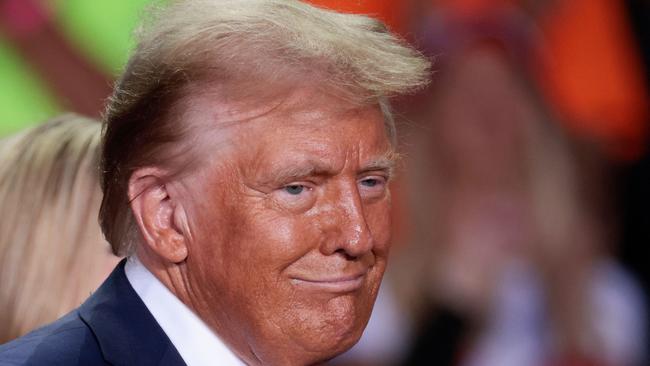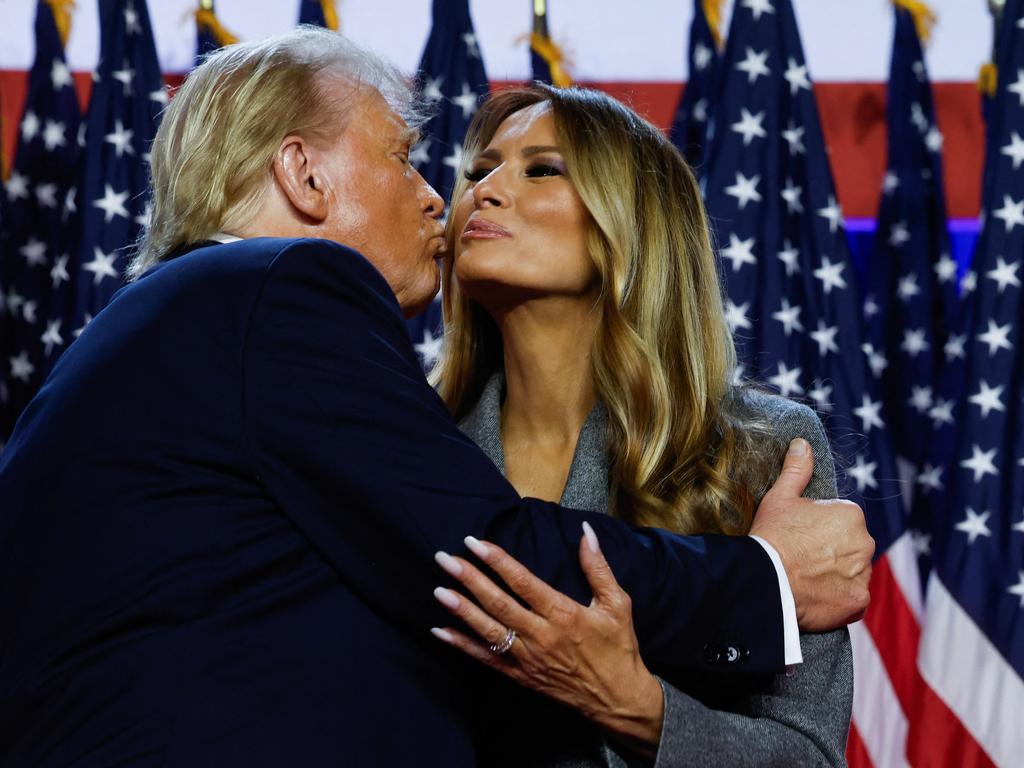Trump presidency would keep inflation, interest rates higher for longer
Inflation and interest rates will be higher for longer under a likely election of Donald Trump as US president, with Treasury warning Australia’s economic growth may be stunted under his plans to tax imports.

Inflation and interest rates will be higher for longer under apparent next US president Donald Trump, with Treasury warning Australia’s economic growth may be stunted under his plans to tax imports.
Economists are also warning there would be implications from the likelihood that Mr Trump would undermine the independence of the US Federal Reserve, with this to cause the US dollar to plunge and make Australia’s exports less competitive.
Ahead of polls in the US closing on Wednesday, Treasury secretary Steven Kennedy said Mr Trump’s policies threatened to weigh on the local economy.
“A significant increase in tariffs would have implications for both the US economy and, for example, if the tariffs were placed on Chinese goods for China there would be flow on consequences for Australia,” Dr Kennedy said.
Mr Trump’s presidential platform includes a commitment to introduce a “universal baseline tariff” of between 10 to 20 per cent on all “foreign-made goods”, with the incoming president making no express commitment to exempt Australia from any levy.
Threatening to inflame tensions with Beijing, Mr Trump has vowed to go further against China — Australia’s largest trading partner — by levying all imports with a minimum 60 per cent tariff.
He has also made a flurry of tax-cut promises, including cutting the corporate rate to 15 per cent, down from the current 21 per cent, while income tax cuts would also be reduced for all households.
The combination of tax cuts, tariff increases, mass deportations and military spending are projected to widen budget deficits by $7.5 trillion over the next decade, according to the Committee for a Responsible federal budget, a non-partisan think tank.
Economist Saul Eslake said Mr Trump’s trade policies would be inflationary and put pressure on interest rates. While he did not think this would affect the trajectory of the interest rates over the next six to 12 months, Mr Eslake said inflation and rates would rise in Australia as Mr Trump’s policies are implemented.
He said Mr Trump’s “contempt” for the global trading order was a “serious risk for Australia’s place in the global economy”. “Other countries are going to retaliate, even though that is stupid, that is what they are going to do,” Mr Eslake said. “It is obviously intended to hurt China which, to the extent that it does, will indirectly hurt us.”
Reacting to the firming odds of a Trump presidency, the local benchmark, the S&P/ASX200, rose 0.8 per cent to 8199.5 on Wednesday, led by stocks with exposure to the US economy. Against the US dollar, which hit a four-month high, the Australian dollar slumped 1.5 per cent to US65.4c. The yield on Australian 10-year government bonds rose 6 basis points at 4.62 per cent.
Judo Bank’s chief economic adviser Warren Hogan said the rise in bond yields showed the market believed interest rates would be elevated for a long period. Mr Hogan said Mr Trump’s election would delay any rate cut next year and may lead to another rise.




To join the conversation, please log in. Don't have an account? Register
Join the conversation, you are commenting as Logout